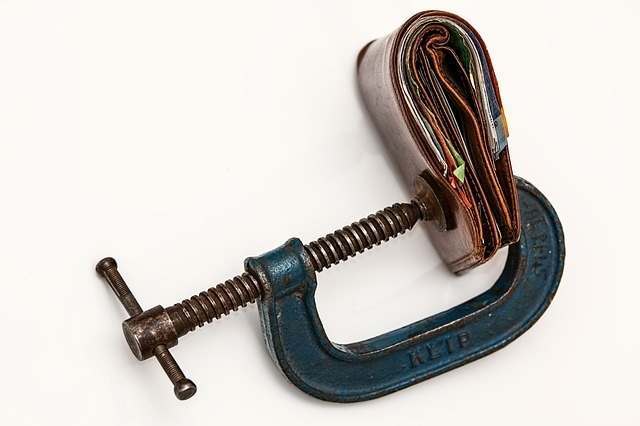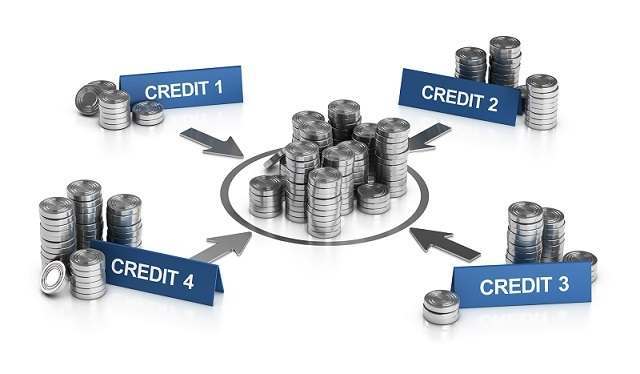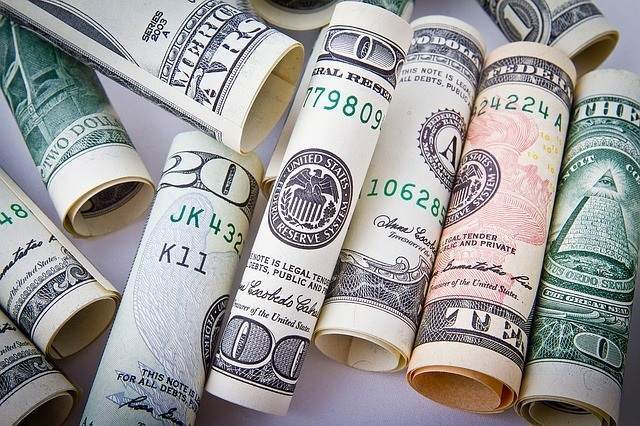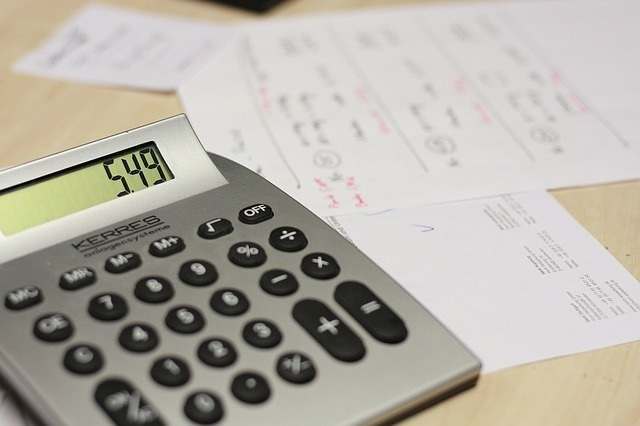Debt Consolidation Installment Loan
Clean up your liabilities with a debt consolidation installment loan. Get the funds you need by next business day to payoff your small personal loans and have one easy monthly payment. You can spread your payments out over time. We can help you organize and get ahead of your debt by getting you funded and allowing you to payoff existing problem loans.
Debt Consolidating Loans up to $50000
We work with people with poor or bad credit. You can get a cheaper loan at a bank but if you're like many of us then your credit is not as shiny as they would like. Our debt reduction installment loan is one way to clean up your monthly payments and get on top of your finances.
Esign | No Faxing Required | Direct Deposit
You can electronically sign your documents and generally no faxing is required. We try to make it as easy as possible to get you the money you need. Complete the application and see if we can get you funded for a 6-9 month signature that may help you consolidate your debt.
What is the Difference Between Debt Consolidation and Refinancing?
Given the confusing and often unintelligible financial jargon, it is difficult for an average individual to understand the use of various instruments and their significance in managing one’s finances. It therefore makes more sense to try and educate yourself on the various kinds of debt and credit options and the terminology related to them. Here we will help you understand the concepts of debt consolidation and refinancing for managing your debts in a better way, and the major distinguishing factors that separate one from the other.

Debt Consolidation
As the name suggests, Debt or loan consolidation is the process of condensing your multiple loan plans into a single debt to simplify your monthly payment responsibilities. A single debt liability not only reduces the number of monthly payments and bills that you need to keep track of, but also offers you the benefit of a lowered interest rate and a smaller installment to pay every month.
Debt consolidation also features the provision of modifying your variable interest rate into fixed rate so that you pay a standard interest throughout the remaining tenure of loan. Apart from the advantage of making a single regular payment and a fixed amount of interest, debt consolidation also helps you get rid of the multiple fees and charges of the separate loans so that you pay only one annual fee for all the credit that you have taken out. Also, since you will now be focusing all your funds on a single loan repayment installment, you stand the chance of paying off the entire debt sooner than before.
Debt Refinancing
On the other hand, refinancing can be described as the application for a new loan at a competitive interest rate, to pay off your existing debts. You can negotiate a different set of terms and conditions including extending the tenure of your loan, reducing your monthly payment liabilities or lowering the rate of interest for achieving maximum benefits from the new loan. Reducing the rate of interest can not only potentially save you tens of thousands of dollars over the entire duration of the loan, but also help you pay out the more expensive existing debt within a shorter span.
People typically go for one of the two fundamental options of refinancing with a loan that has a lower rate of interest, or one that has longer repayment tenure, both of which considerably reduce your monthly financial burden. However, many people end up avoiding refinancing given the fact that they are once again required to start from scratch and go through the entire qualification and approval process to avail the new loan.
Whether you are teetering on the edge of bankruptcy or just wish to reorganize your finances in a better way, you can go for either of the two aforementioned options depending upon your current financial health and your requirement.
Other Articles to Consider:
$5000 Loan | Signature Loans Online | $500 Loans Direct Deposit | $250 Loan | $50 Loans
Can I Consolidate Debt with Poor Credit?
Tackling mounting debts on a low income is a nightmare for a lot of people. If you think you're out of options, don't dismay. A debt consolidation for poor credit may be exactly what you need.
A debt consolidation loan allows you to pay off multiple debts in exchange for a single, larger loan. There are both pros and cons to taking this step, especially for those with poor credit.
Before jumping into the details of debt consolidation, let's look at how most people get into this situation in the first place.
The Dreaded Credit Card Spiral
Many credit card companies prey on younger individuals. Unsuspecting college students often start the downward spiral of unsecured debt payments early in life.
With credit card interest rates ranging from an average of 15% to upwards of 29.99%, it's easy to see how users can get themselves into trouble.
When you're first establishing credit, cards often come with low credit limits. New users find that this is fixed by applying for a new card. For a while, you're able to meet all the minimum payments and life seems good.

And Then the Problems Begin...
Suddenly, you realize you are way over your head in debt, and the total of all your minimum payments is more than you can afford with your current paycheck!
Once you reach this point, you must act fast or things can get out of control. As soon as you start missing payments, your interest rates go up and your credit score starts to decline. Unfortunately, the more you need debt consolidation for poor credit, the harder it is to get.
Taking Control by Consolidating Your Debts
If you're proactive and are able to get a conventional debt consolidation loan, you may be able to get out of the situation without too much damage to your credit. Usually, though, by the time you're looking at your options, you already need to consider debt consolidation for poor credit.
These types of loans may cost you a bit more in interest rates and fees but are usually still your best option. Almost all debt consolidation loans have benefits that can help you get back on a solid financial footing. Here are the top three.
Simplified Payment Schedule
When you consolidate down to a single loan, you no longer have to keep track of multiple payments and due dates. Since late payment fees can add up, it makes sense to keep your repayment schedule as simple as possible.
Better Repayment Terms
When you consolidate your loans, you can usually to negotiate more favorable repayment terms. Getting rid of a multitude of minimum payments and stretching the balance over a longer repayment period are two effective ways to reduce your minimum monthly payment amount.
Lower Interest Rate
One of the most common reasons people pursue a debt consolidation loan is to lower their interest rate. Before accepting a consolidation loan, determine whether the new rate is lower than your current weighted average interest rate. If not, there may still be other advantages to consolidating, but you'll need to think long and hard before moving forward.
Potential Disadvantages of a Debt Consolidation Loan
After learning about all the positive benefits of debt consolidation, you may be ready to jump right in. Not so fast! You must also be aware of some of the potential drawbacks.
It's Possible to Get Yourself Further in Debt
If you consolidate your debts and then charge your credit cards back up, you'll be in far worse financial shape than if you hadn't done the consolidation in the first place.
You Must Stick with the Plan, Or Else
If you fail to make your new payments on time, you run the risk of further damaging your credit score. Even worse, your interest rate may be raised, and you'll likely be hit with some hefty fees.
Decent Debt Consolidation Loans Can be Hard to Find
Debt consolidation for poor credit can be difficult to come by. You must beware of disreputable lenders and predatory lending practices. Always read your contracts carefully before committing to any type of loan and don't be afraid to ask for a second opinion.
The Impact of Your Credit Score
Your credit score is a measure meant to predict how likely you are to repay the debts that you owe. This score, which ranges from a low of 300 to a high of 850, typically determines your ability to obtain a loan and impacts the interest rate you'll be charged.
Generally, a score of 600 or less is considered bad credit. In many cases, if you have a poor credit score, you simply don't have access to the loans you may need. Fortunately, there are some quality lenders who don't rely on credit reports from the big three reporting agencies.
These lenders use other information, which may include your history with specific consumer loans. These inquiries generally don't negatively impact your credit score like other loan applications can.
Tips for Paying Off Your Debt
In almost all cases, the faster you can pay off your outstanding debt, the better off you'll be. Consider taking on additional part-time work or picking up extra hours at your current job.
Look around your house and see if there are items you can sell for extra cash. Electronics, brand-name clothing, and other items are often easy to sell online. If you have a lot of random stuff you could part with, a yard sale might be your answer.
Although these measures may seem excessive, it's definitely in your best interest to do whatever you can to get yourself out of debt. Our finances are one of those things that follow us around forever, so sacrificing now is worth it for the future peace of mind.
Need Help with Debt Consolidation for Poor Credit?
If you're ready to consolidate your debt, there's no time like the present. Don't bother applying for one consolidation loan after another. Instead, complete a single application and let us match you up with the right loan for your needs. You could be approved in minutes for an installment loan with no hard credit check.
Our approval process only takes a few minutes, and bad credit is okay. Apply online today and you'll see just how easy it can be!
Bad Credit Debt Consolidation Loans
Bad credit debt consolidation loans may be the answer to your financial stress. Here's some information to help you make an informed decision when to consolidate. Loan consolidation as you might have heard from your agent or just about anyone in the financial industry is one of the best ways to organize and pay off loans. It is a great option if you are the type of person who needs to clear up multiple outstanding debts or bills. Before getting into the meat of the matter, let us first get some clarity on the subject at hand. There are a few concepts that might not be well known to people who do not have a background in finance.
What is Bad Credit?
Credit is something that most of us know and almost all of us are in, in some way or the other. Credit is what is owed in cash. When a person or a company is in credit, it means that there is a financial obligation pending on an exchange of goods or services. Credit is often called the payment in the future. So you get a product or a service now and pay for it later. The thing about credit is that it has to be paid back, usually with a bit more for the convenience. So what are my loan options with bad credit history?
The first instances of recorded credit happened in the year 1300 BC between the Babylonians and Assyrians. They developed a rudimentary system that is pretty much used to this day. Loans were created based on mortgages and advances based on deposits. The slips hence created can then be used as a way to pay a third party for the amount owed. It was an easy way to make payments without actually carrying a ton of gold everywhere they went.

Fast forward a few thousand years, bank loans and repayment methods were common places. There are banks that are continuously in operation from the 1400s to this day (the Banca Monte dei Paschi di Siena). The main function of any bank is to accept deposits and hand out loans. It is around these tenets that every bank operates. Giving out loans to people who are in need of it is how banks also make most of their money. They charge a certain amount in interest depending on the type of loan and the duration of the repayment time. This amount will add up in the course of the repayment. When you are not able to make payments or if the person who has taken the loan refuses to make payments, then they are called bad debts. It is a loss for the bank. Now, no one is stopping the same person from doing this over and over causing a string of unchecked loans from banks.
That is why the credit rating system was introduced. In this system, every person has a file and in it, there are entries made every time there is a banking transaction made. So every time there is a loan taken, there will be a new entry. When all the installments are paid on time, another entry is made. So depending on how well the person is able to maintain their finances, there is a score that is assigned. So naturally, a high score means you are a financially responsible human. Banks will be willing to extend you a line of credit without any further thought. It makes the loan application process fair and simple. When you approach a credit card issuer, they can tell right away if you are going to be a good customer or not. Bad credit happens when your scores are low and as a result, you are not able to convince any bank to offer you a mortgage, car loan, educational loan, or even a personal loan.
Why People Get Bad Credit
There are several reasons as to why a person can fall into bad debt. In most cases, it is because you were reckless with credit in the first place, or a major life event changed your cash flow. Credit cards are cheap and at a young age, spending money that you don’t have yet is alluring and people tend to not care about consequences. This is also not the case for everyone. There are a good number of people who get into such situations because of things beyond their own control. Either way, when loans are taken and not paid back in time, they build up and the score gets worse and worse every time. How do I go about getting a bad credit loan online?
Another thing that you have to remember is that if you do not take any loans or use credit cards all your life, it might seem like you by default have good credit. That is a complete myth. In fact, if you have no record of taking any loans or using any cards, that means you have no score, not a high score. Having no score does not make you a responsible person. So you actually need to take loans or credit cards and make continuous payments that are regular and on time to gain credibility as a customer for banks.
What is Debt Consolidation?
Debt consolidation is the process through which all your debt is brought together to one loan and you can make one payment instead of the five or six that you might be forced to make. As a financial tool, it is a near perfect way to bring your situation into control.
How Debt Consolidation Works
Let us assume you have large debt and all your debt is in different places. You have a mortgage, a car loan, a student loan, 4 credit cards, and one stream of income. You receive emails and bills come in your letter box frequently enough. So at the start of every month, you gather yourself and begin to pay them off one by one. Will I be able to get a loan with monthly payments? That is seven payments to keep track of, each going to different places and different amounts. That is not impossible to handle by any means, but people tend to forget, misplace, and payments might not get through. It is human nature to let something like this slip through and if you do, not only will have to pay off more in term of fines, but your credit scores will also get hit.
After a few times of that happening, the payments you make every month will not only get bigger, the duration of each loan will also increase. What you need at a time of crisis like this is to have one payment to make. So what you can do is get a consolidation. Then you have one payment to make instead of 5.

That being said, not all loans can be consolidated. There are two kinds of debts that you can be in. First, you have your secured loans- ones that have collateral. These are loans which are covered by an asset that it is paying for. Take a housing loan or a car loan, for example, if you do not make enough payments, the bank or the lender can come up and take your car away. Mortgages that go unpaid are handed over to banks that will then proceed to sell the house and recover their losses. Unsecured loans, on the other hand, do not have this backing. They are given to you on the basis of good faith. The only thing that can happen to you is that your credit scores will take serious damage and structured loans and other lines of credit will be closed to you. If you do manage to get a loan, it will be expensive and simply not worth your time.
So a loan consolidation is designed to gather all of your unsecured loans together. So keeping to the above example, your car and mortgage will still be there, but apart from it, all of your credit cards and student loans as well as your personal loans, if you have any will be brought together. A loan consolidator will contact your credit card provider and the banks that offered you your student loan and personal loan. Then all of them will be paid off in one shot. So you can foreclose your loans in one go. Now you will be left with one payment to make.
When to Consolidate
There are times when a consolidation is the best thing to do, other times, not so much. Here are a few pointers that might help you with making the decision on whether to consolidate your loans or not.
Lower Interest Rates
If there is a chance that you are getting a lower interest rate than what you are paying now, you should definitely go for it. Let's say you have 3 credit cards and all of them have an interest rate ranging between 18% to 24%. In such cases, if you are able to land a consolidation that goes at a rate of, say 7% to 9%, it is profitable enough for you to consider seriously.

Shorter Payment Duration
Not many understand this, but even if you are making the minimum payments on your credit card, you are going to be paying out your bills for perpetuity. For example, an outstanding amount on your bill, if cleared by making minimum payments will be drawn out for as long as legally possible, if you do not stop using your card in that mean time, you are stuck making payments pretty much forever. Consolidation loans, on the other hand, have a fixed end period. They normally go between 3 to 5 years. So at the end of it, you are done with the debt, it is a way to effectively shorten your payments. That includes student loans. If you want to get your loans cleared up sooner than the original term, it would be a good idea to go with a consolidation.
Types of Interest
Variable interest rates are great, but when the market swings in your favor, you could be stuck paying a lot more than you bargained for. A consolidation can bring an end to all of this uncertainty by bringing in a single rate of interest. While it might be a little more than the original rate at which you got your loans for, it is a good way to bring some stability into your finances, especially when the market is volatile.
When Not to Consolidate
There are a few instances where it is not really a good idea to consolidate your loans.
• Short Time Period
If there are only a few months, or your loans end within the year, there really is no point in consolidating your loans. It then becomes too much of a hassle and the money you save will not really be worth it.
• Cash Flow Woes
This is probably the biggest cause for concern. The idea here is that you need to pay off your debts quickly, but if you are unable to make the payments, the very purpose of consolidation is lost. You can still make minimal payments if you hold on to the credit card debts as is and coast till your money problems get sorted out. A loan consolidation EMI will be a fixed repayment so every month, you will have to cough up the money regularly.
• Need to Continue Using Credit Cards
When you get into a consolidation program, It is likely that you are willing to stop taking more debt. It is a recovery process, so you will have to give up all of your cards and not use them till you are done clearing all of your debts. If you cannot do this and keep on applying for new cards, your credit score is not going to get any better.
You will end up damaging your score more than you think. A loan consolidation is not something that is done only when you are in the depths with your credit score. It can be done if you want to wrap up a few loans quickly and efficiently. If you, however, need to improve your bad credit, then a debt consolidation is a solid option any way you see it. If you feel like you are in need of one contact an agent today and get a consultation right away.
Apply with us today if you would like to apply for a debt consolidation installment loan.
Monthly Payment Debt Consolidation Loan
Use one of our unsecured installment loans as a debt consolidation loan and turn all your pesky little bills into one simple monthly payment. Each payment consist of principal and interest so you know exactly how much your payment will be and it doesn't change until the loan is paid off. You may even be able to save some money depending on the expenses of your other bills.
Everyday people are discovering the simplicity of getting a loan through our lenders. One quick application and we go to work with over 50 lenders to try and get you approved and funded. The money will be sent directly to your bank account. $500 loans all the way up to $50,000!
Equal Monthly Installment Payments Debt Consolidation Loans
If you have a loan that keeps rolling over into more fees and charges then you need to take a hard look at a monthly installment loan for debt consolidation. It is just like your car loan, each payments includes principal and interest and the loan ends on a set date. You know up front exactly what your payments and expenses will be.
Pros and Cons of Debt Consolidation
What are the pros and cons of debt consolidation? If you have multiple simultaneously-active debt plans, you might want to consider the idea of debt consolidation. Whether you are experiencing a major financial crunch or simply wish to manage your finances in a better way, debt consolidation can seem like an ideal resolution to all your budget related problems.
But is it really worth the risk? Read on for the major advantages and disadvantages that come along with debt consolidation and how they might impact your overall financial health.
Debt Consolidation Pros
The first and foremost benefit of debt consolidation is that it lets you organize your multiple liabilities into one portfolio, which is both easy to manage and repay. Considering the different debt plans that you have to repay, you might be paying a hefty amount solely in the form of interest contribution towards each one of them.

However, consolidating the various plans into one single debt will ensure that you pay interest only on one loan, which typically has a lower interest rate as compared to the separate plans. Since you will now be paying one single installment every month, it will be less of a financial burden on you as compared to the combined repayment amounts of the separate loans. You could qualify for a $2500 loan. Also, given the lower interest rate of the consolidated debt, your monthly installment will be smaller than before. Never borrow money that you are not confident you can repay on time.
Debt Consolidation Cons
Consolidating your debt can end up ruining your financial health further, by freeing up money that you can use for more mindless spending and get buried deeper in debt. It is therefore advisable to utilize this money to either make an investment or contribute a little extra each month towards your debt repayment. Despite a lower interest rate, you might end up taking longer than before to pay off your debt.
As a result you might have to pay more interest in the longer run as compared to that of the separate debts. Could you use a 1000 dollar loan sent to your bank account? Some lenders or debt consolidation companies might require you to offer some kind of collateral such as a lien against your car or a second mortgage on your house. In the event that you are unable to repay your loan amount, you might eventually end up losing your prized assets and property.
The bottom-line is that Debt consolidation is merely an instrument to convert a current debt to a different debt. This implies that it is not exactly a fool proof solution for over indebted borrowers. If you really wish to manage your finances well and ease off your financial burden, you must make it a habit to spend less, save more and repay your debts on time with your own income.
Related: Loans to Payoff a Power Bill | 6-9 Month Loans | Small $50 Loans
Disclosure:
Each state has different laws regarding unsecured installment loans which may limit the amount of money you are able to borrow. WireLend is not a lender. Other lending options may be less expensive, know all your options before getting loans. Please use short term credit responsibly.
